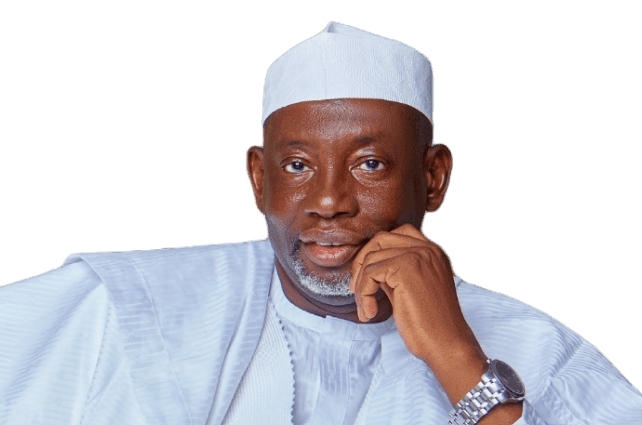News
INEC is Wrong: We Need More Digital Democracy to Build Trust in Our Political Process

By Joel Popoola
The Independent National Electoral Commission has apparently turned its nose up at electronic voting, claiming Nigerians don’t trust our democracy enough for it to work.
They are quite right that Nigerians simply do not trust our political leaders or institutions.
But this is a classic example of “what came first, the chicken or the egg”. And I think INEC is wrong. It is not the case that a lack of trust makes digital democracy impossible. In fact, digital democracy like electronic voting is exactly what Nigeria needs to build trust in our democracy.
Speaking at an event in Ondo State, INEC director Nick Dazang argued:
“The main issue in our election is that of trust. Once we continue to do things transparently and stakeholders, including politicians, media, political parties, observers and civil societies trust INEC, you don’t even need to use sophisticated technology for election”
Dazang claimed that electronic voting is too easily hacked to be trusted by voters.
This of course implies that putting bits of paper in a box and trusting the person watching the box to deliver it to the right place and then trusting the person counting it to count it correctly – or at all – is a foolproof and incorruptible system! If that was true, perhaps Nigerians would trust our democratic processes!
On his main point, Dazang is quite right. What Nigerian democracy needs most is urgent practical steps to address our trust crisis.
72% of Nigerians believe the statement “most politicians are corrupt” describes our country well – and six-in-ten say it describes Nigeria “very well”.
Only 39% of Nigerians are satisfied with the way democracy is working in our country, while 60% say they are not satisfied.
And – probably as a result – our voter turnout is the worst in West Africa, 34.8% at the last presidential election compared to 68.6% in Ghana.
Electronic voting can guarantee confidentiality, ensure that only eligible – and living! – voters vote and that the votes they cast actually reflect their choices, and are counted.
And as a year of remote working as a result of COVID-19 has demonstrated, software solutions allowing the secure digital transfer of confidential information are widely available and easy to use, with a year’s worth of relentless international testing to prove it!
A central element of the trust crisis in Nigeria, and across Africa in general, is an absence of credible elections.
Using new technology to address the practical problems which detract from the credibility of our democracy is an opportunity we need to seize.
Other advantages of an electronic system include the faster delivery of election results, increased trust in elections through minimisation of human error and even long-term cost savings.
This is just one of the ways we can take advantage of technology to improve the transparency of and trust in our political process – while making our democracy work faster and more efficiently.
At the digital democracy campaign I lead, we are also working to bring electors and elected closer together.
We’ve developed a free smartphone app – Rate Your Leader – to use smartphone technology to allow elected officials to interact directly with confirmed voters in the divisions they serve – and to do so in a way which makes insulting communication difficult, and dishonest communication undesirable.
This way politicians and people can use Rate Your Leader to engage person-to-person, and understanding each other’s needs and positions. This way, leaders can find out rapidly what matters most to the people who elect them, and collaborate to address those issues. And voters can even rate their politicians for their transparency and accessibility.
And that in turn builds transparency and trust, which are such scarce commodities in our political process.
For INEC to be publicly spurning electronic voting is particularly disappointing following its announcement that in May 2020 that it intended to “pilot the use of Electronic Voting Machines at the earliest possible time, (and) work towards the full introduction of electronic voting in major elections starting from 2021.”
Universal electronic voting is clearly not viable in a country where many still lack access to reliable and secure internet. But there is nothing stopping us from starting down the path towards becoming Africa’s first truly digital democracy.
Because in 2021, democracy is digital.
More Nigerians own a smartphone than Permanent Voters Card (PVC). And as our experience of Rate Your Leader proves, it isn’t just the most effective and efficient way of conducting political activities, it’s the way that the electorate wants to carry out those activities.
Joel Popoola is a Nigerian tech entrepreneur, digital democracy campaigner and creator of the Rate Your Leader app. You can follow Joel on Twitter @JOPopoola
News
Jigawa Gov Knocks Danjuma over Defend Yourself Advice

Jigawa State governor, Umar Namadi, has cautioned against calls for self-defence from mauruding bandits and killer herders, warning that such a move could plunge the country into anarchy.
Speaking on Channels Television’s Sunrise Daily on Monday, Governor Namadi responded to recent comments by retired General Theophilus Danjuma, who urged Nigerians to defend themselves against bandits and armed attackers, particularly in Benue and Plateau states.
General Danjuma, a former Minister of Defence, had argued that reliance on the government for protection was no longer tenable given the spate of violence and killings in the country.
“It is now very clear that the government alone cannot protect us. We must stand up and defend ourselves, our families, and our lands before these criminals overrun the entire country,” Danjuma said during a public event in Takum, Taraba State, on Saturday.
But Governor Namadi rejected that approach, describing it as a dangerous path.
“He (T.Y. Danjuma) is a very senior security person, and his words deserve respect and analysis,” Namadi said. “But I think if you say citizens should be allowed to defend themselves, you’re causing anarchy. I don’t think we’ve reached that level yet.”
He argued that rather than encourage armed self-defence, the government at all levels must continue to strengthen Nigeria’s security architecture.
“The government is doing its best in terms of security arrangements. If you allow the people to defend themselves, that means you are encouraging a crisis between farmers and herders,” the governor warned.
Namadi cited his administration’s approach to resolving the long-standing farmer-herder clashes in Jigawa State as a better alternative. According to him, when he assumed office, he prioritised non-violent conflict resolution strategies.
“When we came in, we decided to employ a lot of strategies and tactics, including dialogue,” he said. “We engaged traditional rulers, as well as representatives of both farmers and herders. We sat down, reached a consensus, and established standing committees to reconcile all parties.”
He added that these efforts helped halt a decades-long conflict:
“The people now understand that the 25 years spent fighting and killing each other were not worth it. Today, they are able to work, interact, and live together in peace.”
Governor Namadi further noted that Jigawa is currently not among the states facing severe threats such as insurgency or mass killings by bandits. Instead, the primary challenge had been farmer-herder clashes, which his administration has successfully curtailed.
“We thank God that Jigawa State is not affected by insurgency or insecurity for no. The major issue we are dealing with is the herders-farmers clash, and we are addressing it decisively,” he said.
Despite the worsening security in other parts of the country, Governor Namadi insisted that self-defence is not a viable solution and could deepen the crisis:
“So, I think the government is doing its best, both at the federal and state levels. The issue of asking people to defend themselves — I think we have not reached that level yet.
News
2027: North Will Take Stand in Next Six Months – Baba-Ahmed

Dr. Hakeem Baba-Ahmed, a former Special Adviser on Political Matters to President Bola Tinubu, has revealed that the North will, in the next six months, take a stand on who to support for the presidency in 2027.
He boasted that no politician can win the presidency in 2027 without the support of the region.
In a video interview he granted in Hausa language, Baba-Ahmed, who appeared alongside a former Executive Secretary of the National Health Insurance Scheme, Usman Yusuf, lamented the state of the nation and urged northerners to resist divisive and deceptive politicians ahead of the next general elections.
He said: “In the next six months, the North will decide where it stands. If the rest of the country wants to join us, fine. If not, we will go our own way. One thing is clear: nobody can become president of Nigeria without northern support.
“We want a government that understands our problems and can address them. After Buhari’s eight years, we became wiser. Now, we are in another government, and we are still crying. Is crying all we know how to do?” Baba-Ahmed asked.
According to the former presidential aide, the North has suffered greatly during the Boko Haram insurgency, which affected all groups, Muslims, Christians, Fulani, Baju, and others, highlighting the need for unity.
“Before Buhari became president, Boko Haram was bombing mosques, churches, Abuja, and Lagos. That was a time Northerners had to unite. Today, no politician can just show up and expect Northerners to fall in line. Who are you?” he questioned.
He therefore warned against further marginalization of the North, noting that continued disregard for the region would have consequences.
“If they plan to rig the election, they should be careful. It won’t be good for Nigeria. The North is watching, elders, masses, and interest groups will soon say “enough is enough ‘. The injustice and sidelining must stop.
Baba-Ahmed urged the northern region to look beyond identity politics, stressing that competence and integrity should guide voter decisions.
“We are tired of being deceived into voting based on religion or ethnicity. That era is over. We just want a right leader, we just want someone who will solve our problems,” he said.
News
Embrace Christ-like Virtues, Glo Urges Christians at Easter

Telecommunications giant, Globacom, has charged Christians to embrace the virtues that Christ preached as the 2025 Easter celebrations hold this weekend.
While congratulating Christians in Nigeria in a goodwill message released from its Lagos Head Office on Thursday, Globacom admonished them to imbibe the noble qualities of Jesus Christ.
According to Glo, “Peace, love and sacrifice are the central message of Easter. Christ offered himself in atonement for the sins of the world and he lived a life which made Him an eternal symbol of peace and goodwill for mankind”
Globacom charged all Nigerians to espouse the lessons of selflessness, a necessary ingredient in the growth and development of every society and called on all Nigerians to join hands to make Nigeria a better place for all.
The company praised their perseverance through the 40-day Lenten period which comes before Easter as it emphasized the ideals of selflessness, love and peace among all as a way of demonstrating the exemplary life of Jesus Christ.
Easter comes yearly at the end of the Lenten season of fasting and prayer considered as a ritual of purification for the Christian faithful. It also precedes the crucifixion of the Lord Jesus Christ on Good Friday and His eventual resurrection on Easter Sunday.
The company assured its customers of unhindered voice, data and Short Messaging Service (SMS) during and after the Easter celebrations, while urging them to avail themselves of the various data and voice offerings on the network.






